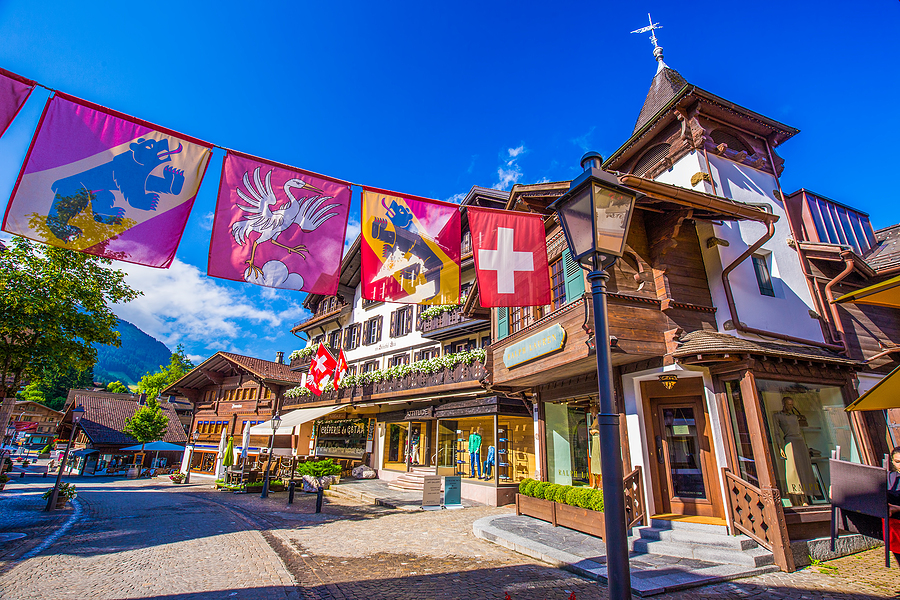
July 08, 2023

Source: Bigstock
GSTAAD—There are lurid rumors circulating around this alpine village that an international literature symposium has taken place, with some of the richest and more recent arrivals demanding the arch suspect behind the alleged outrage to deny it or else. “Say it ain’t so, Joe,” screamed a nightclub freak to the suspect right on Main Street. The suspect’s name, incidentally, happens to be Thomas Gommes.
Now, I am the first to admit that reading can be a dangerous waste of time, especially when there are great mind-expanding shows to watch on large and small screens such as Batman, The Masked Marvel, Godzilla vs. King Kong, and other similarly spiritually uplifting subjects. Be that as it may, a literature symposium did take place with the support of many people who live here, its prime mover and organizer being the aforementioned Thomas Gommes.
And it was about time, too! We’ve had a conference on how to make more money, and an even more popular one on how to live much longer if you’re rich. (Covered by your intrepid correspondent last winter.) A literature symposium is just what the doctor ordered for the residents of a resort known for very expensive chalets, much nouveaux glitz, and too much après-skiing. Mind you, bookstores are as rare around here as Fabergé eggs are in downtown Mogadishu, but never mind. The locals are not exactly predisposed to purchasing books, just as the visitors aren’t either, with only two bookstores—financed by a pharmaceutical heiress, Vera Michalski-Hoffmann, also a symposium sponsor—in the whole valley, including the villages of Saanen, Rougemont, Schonried, Gstaad, and Gsteig.
Like most good things, WOW (World of Words) started off with a bang. Giuliano Da Empoli is an Italian-Swiss writer, a young man of so many talents, so many books, and so many awards, he should have been banned from a resort for the unemployed rich. His first novel, Le Mage du Kremlin, will soon be translated into English, and I’m reading it in French. It’s a grand novel of Russia today. During his conversation with French novelist Francois-Henri Deserable, one that was light and delightful with none of that phony seriousness female Brit and American novelists put on, I did not have a chance to ask him of the similarities of the Russo-Ukraine war to the Americano-Iraqi conflict. As we all know, America invaded its neighbor Iraq in 2003, Iraq being situated between North and South Carolina, whereas when Russia invaded, the Ukraine was a faraway nation separated by an ocean.
Never mind. Next came my buddy Jay McInerney on the role and reasons for fiction. Jay became a star with his first book, Bright Lights, Big City, forty years ago and coined the phrase “Bolivian marching powder.” He’s written twelve novels and many short stories since then, and he’s still a very bad boy—in the very best sense, that is. I took him to lunch the next day and we talked about Papa Hemingway and Scott Fitzgerald, our heroes. We agreed that the most heartbreaking closing scene ever is Dick Diver turning suddenly and blessing the beach in Cannes. That’s in Tender Is the Night. The best opening paragraph ever is in Papa’s A Farewell to Arms.
Kyra Troubetzkoy’s sixth novel is The Paper Trap, and Alexandra and I used to be great friends with her mother, Sophie, who tragically committed suicide very young. Noble Russians tend to do that, especially when out of Russia like the Troubetzkoys were. There were many other writers, all of them talented, all of them young, and it made Gstaad feel different for a couple of days.
Let’s face it: There is nothing as satisfying as reading great prose except maybe sex, and there’s nothing like the taut, understated writing of Hemingway. Does the imaginative range of today’s writing seem limited? It does to me. Today’s writers generally describe men as dopey and destructive, whereas women are clever but thwarted. Yet long ago Papa’s and Scott’s heroines ran rings around the men, but they were subtle about it: Nicole, Rosemary, Brett Ashley, and so on.
Nah, Hemingway’s best work is deeply moving and rich in meaning and psychological complexity, and he reinvented American prose and the short story. Needless to say, what I love so much about him is the larger-than-life persona as a hard-drinking, hardworking outdoorsman and woman-chasing lecher. The latter was a pose, as Hemingway took marriage seriously. Papa’s competitiveness and belief in himself did not stop him from recognizing Fitzgerald’s talents. Here’s Papa writing to Scott after the latter’s disappointing reviews on his master opus Tender Is the Night: “You, who can write better than anybody can, who are so lousy with talent that you have to—the hell with it. Scott for God’s sake write and write truly no matter who or what it hurts….” Papa could be hard on writers: “Zola and Hugo were both lousy writers but great men…. Flaubert is a great writer but only wrote one good book, as is Stendahl, a great writer with one good book.”
Have I gone on too long about Papa? The answer is one can never go on too much about him—nor Mozart, for that matter. I started the Gstaad Symposium 25 years ago and led off with historian Alistair Horne and followed up with the Great Maggie Thatcher. Then I took my eye off the ball and the thing deteriorated. With WOW, people who know how to read may even start coming to Gstaad.